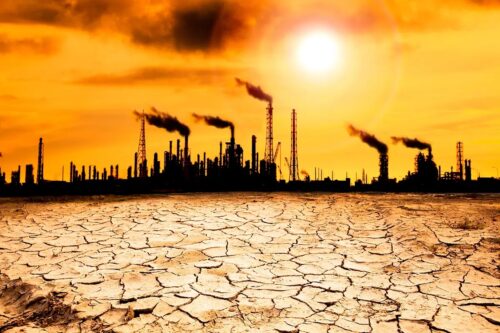The liberalization and the Globalization have brought a number of visible and invisible changes in the World Economy. Some of the visible changes are- better communication systems, processed food and soft drinks. In Indian context, some of the invisible changes are-
(i) Marginal increase in the share in the trade of goods and services,
(ii) Increase in the foreign Exchange,
(iii) Slow generation of Employment, and
(iv) Slow growth of Indian Industry.
Impact on Agriculture
Modern agriculture is greatly affected by the availability of appropriate technology, natural resources, markets and policies of the government. During the current age of liberalization and globalization, the agriculture is facing many pressures from many sides. Externally it has to fulfill external interests by allowing foreign investments and foreign trade. The International Monetary Fund has imposed the structural adjustment Programme. According to this programme, the import of fertilizers is to be liberalized. The subsidies to irrigation, electricity and credit should be removed and prices of wheat, rice, sugarcane etc. should be deregulated. It also emphasizes the dismantling of the Food Security System.
The liberalization on internal level includes reduction of inputs like synthetic fertilizers and pesticides by depending on organic fertilizers and bio-pesticides. It tends to help farmers in getting rid of debts, provides lands to the landless, and re-organises local food security systems including local markets.
The globalization of agriculture is introducing various new trends like- introduction of Genetically Modified Seeds (GMOs) and plants; privatization of water for irrigation and creation of wide gap between the rich and the poor farmers. It is violating Human Rights by depriving poor farmers from their share of resources like land, water and biodiversity.
From the discussion above, it may be clear that the globalization of Indian Agriculture is in no way a beneficial step. Instead of globalization, a sustainable agriculture based on the democratic sharing of resources, strengthening of local biodiversity, promotion of indigenous agricultural knowledge and the application of organic and bio-fertilizers along with several other popular systems are required to raise the productivity of the Indian agriculture.
Impact on Industry
Major changes have been made in the Indian Economic and Industrial Policies since 1991.Our industries today are passing through a new phase of liberalization and Globalization. Rules for licensing of industries have been relaxed and gates have been left open for even foreign investors to establish industries on our land. The same trend is prevailing in other parts of the world also. Some of the impacts of liberalization and globalisation on industry are mentioned below.
In order to promote trade among countries, the United Nations set up a World Trade Organisation in 1995 with its head quarter at Geneva. The WTO has significant impact on liberalization and globalisation. This is because; the WTO is regulating the international trade of goods and services. Many rules framed by WTO go against the developing countries. It forces the developing countries to open their economies in the interest of the developed countries. Being unable to face international competition many of the Indian industries are at the brink of closure. Thus the chances of employment are being reduced considerably. Some clauses in the WTO- text on agriculture put restrictions on the provisions of subsidized food grains in India. Thus, WTO interferes in the management of our domestic economy. By abiding by the rules of the WTO, economists of India fear that prices of the essential lifesaving drugs may also go up and it is very dangerous for a developing country like India.
In the age of globalization, many industries that have already been prohibited in their own countries have shifted their locations to India. It is observed that industries keen to save costs on environmental protection are attracted towards other countries with less strong environmental standards and weak law enforcement mechanism.




